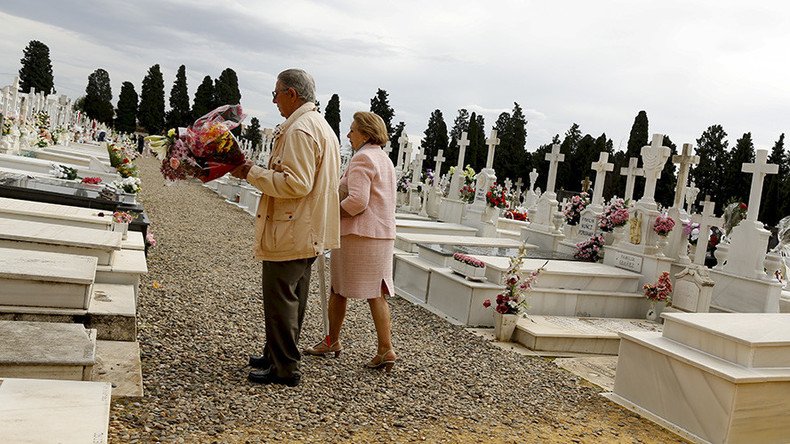Spain’s cash-strapped pensions system paid out €300mn to dead citizens in 1 year

It turns out Spain does not always stop paying pensions to people who died and might spend as much as €300mn taxpayers’ money a year this way. An audit has found “holes and deficiencies” in the way authorities keep track of people’s deaths.
A report issued by Spain’s Audit Office revealed that almost 30,000 people whose deaths have officially been registered were still included on the receipt of a pension last year, Spanish media said.
“There was a total of 29,321 retirees receiving pensions amounting to €25.3 million per month whose names were included in the National Statistics Institute’s (INE) register of deaths,” the Audit Office said according to El Pais. As many as 95 percent of these names were found on the list of people receiving a pension in October 2015, the report said.
Overall, the Audit Office said that there were “holes and deficiencies” in the Spain’s Social Security system which appears to have been struggling with keeping a proper track of the citizens’ deaths.
The auditors noticed the alleged problem after they compared the lists of people who died between 1987 and August 2015 with the list of people receiving a state pension in December 2014.
“The INSS doesn’t employ effective controls over who it pays pensions to, and neither do the banks through which pensions are paid,” the Audit Office said referring to the National Social Security Institute.
INSS, however, said that it was very unlikely there have been any faults in the system which relied on the identification cards of the deceased.
“It seems highly likely that there have been errors in entering identification numbers, or that they have been duplicated,” he said, El Pais reported.
The Audit Office says that the reason for the mentioned fallacies lies in the fact that people’s deaths do not get immediately reported to the INSS by the Registry Office and the National Statistics Institute (INE) which are supposed to be keeping records.
The findings are not looking on the bright side for the social security system which has been undergoing a biggest deficit in its history this year. Last week the INSS has been forced to borrow some €8.7 billion from its reserve fund in order to cover the costs of the summer pension payments, El Pais reported.














